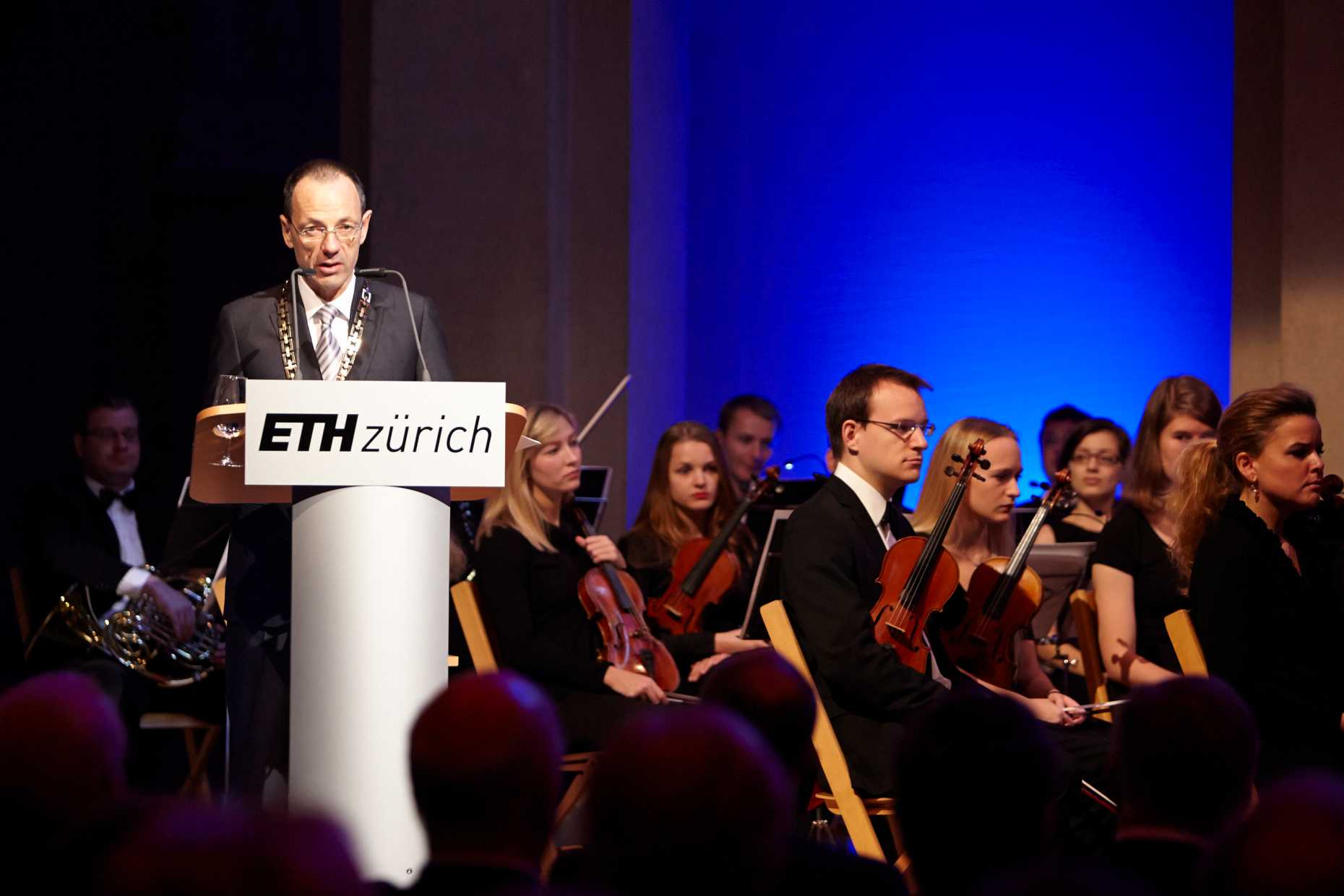The task of staying in the world elite
At the traditional ETH Day, Rector Lino Guzzella explained the special role that ETH Zurich plays in Switzerland’s complex system of research and education. In his official speech, Federal Councillor Johann N. Schneider-Ammann outlined what he expects from ETH Zurich.
Since the beginning of this year the fields of education, research and economic affairs have been brought together in a new, single department at federal level. At this year’s ETH Day, Rector Lino Guzzella welcomed this reorganisation and took the opportunity to examine the role of ETH Zurich in Switzerland’s successful research and education system.
In his opening address, Guzzella, himself an engineer, compared the education system with a complex machine in which many cogs are linked with each other and whose smooth operation is endangered if only one cog is missing. “No cog is worth more than any other, even if some cogs are more expensive to make than others, or if they need a special lubricant,” he said, his metaphor referring to the fact that the research and teaching institutions in Switzerland are responsible for different tasks on different levels.
A clear framework
At ETH Day, Guzzella clearly argued against any kind of system that makes “everyone equal”. Politicians need to create a clear framework for all the participants in the education system and may not expect individual institutions to do more than their appointed tasks. “I firmly believe that it is better to fulfil a clearly designated task exceptionally, than to process a broad list of demands. The latter would inevitably lead to mediocre results,” said Guzzella.
ETH Zurich and EPFL together have the special task of conducting research and teaching at a global level and of establishing international networks. Only in this manner can ETH meet the expectations of Swiss industry and society and of national politicians. Guzzella stressed the cosmopolitan tradition of ETH Zurich, but also pointed out that this is bound up with a need for facilitating integration.
Expectations as the price of autonomy
It was precisely these expectations placed on ETH that the guest of honour, Federal Councillor Johann N. Schneider-Ammann, took as the topic for his official speech. There is a broad consensus, he said, between the population as a whole, business and politics that a lot of money should be invested in élite research without making demands in return. What most certainly is demanded, however, is not just a relentless pursuit of excellence, but also that ETH should link Switzerland as a site of education and research with the rest of the world, and thereby assume its responsibilities for and in society.
As an example, the Federal Councillor mentioned local young researchers, and spoke in favour of supporting instruments such as tenure track, ERC research scholarships and professorships funded by the Swiss National Science Foundation. But he reminded those responsible at ETH Zurich that there must also be a focus on local talent, despite internationalisation. Schneider-Ammann sees ETH Zurich and EPFL as the driving force in international competition. As the head of the Federal Department of Economic Affairs, Education and Research, he also expects that ETH will open doors to the wider world for smaller universities, universities of applied sciences and SMEs. “In this way, we can make yet better use of the potential offered by European programmes, ” he said. The Federal Councillor praised the collaboration between ETH Zurich, EPFL and the University of Zurich, but at the same time he urged ETH to network even more with the universities of applied sciences.
The Minister for Research and Education took the opportunity to thank the members of ETH for their committed participation in expert committees, advisory bodies and charitable projects. “I want to say this once, for it is not one of those things that are often stressed, ” he added.
Four Honorary Doctorates and four Honorary Councillors appointed
Four individual researchers were awarded an Honorary Doctorate by ETH Zurich on Friday: Prof. Jillian F. Banfield, Professor at the University of California in Berkeley, was honoured for her ground-breaking work in the field of geomicrobiology. Peter Jenni was honoured for the planning, construction and management of the ATLAS experiment at the Large Hadron Collider (LHC) at CERN. Noga Alon, Professor of Mathematics and Information Science at the University of Tel Aviv, was honoured for his fundamental contributions to discrete mathematics and theoretical information technology. Eric A. Brewer, Professor of Computer Science at the University of California in Berkeley and Vice-President of Infrastructure at Google, was given an Honorary Doctorate for his contributions to scalable distributed systems in the internet.
The three businessmen René Braginsky, Martin Haefner and Max Rössler were appointed Honorary Councillors of ETH Zurich on account of their extraordinary personal commitment to supporting education and research at ETH Zurich. The same award went to Georg Edwin Felix Schoop, the head of the Baden Forest Administration.
Golden Owl for committed lecturers
Traditionally, the best teachers are also honoured at ETH Day. The Association of Students at ETH Zurich (VSETH) gave one lecturer from each department a “Golden Owl” for particularly committed, excellent teaching. The Credit Suisse Award for Best Teaching this year went to Prof. Günther Dissertori from the Department of Physics.
Impressionen vom ETH-Tag 2013
-
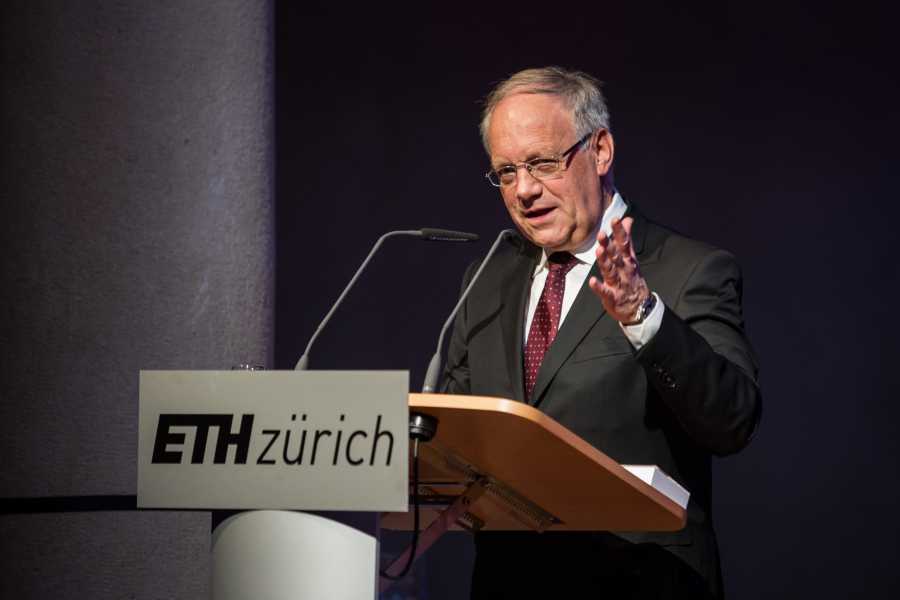
Federal Councillor Johann N. Schneider-Ammann outlined in his official speech what he expects from ETH Zurich (Photo: Oliver Bartenschlager / ETH Zurich). -
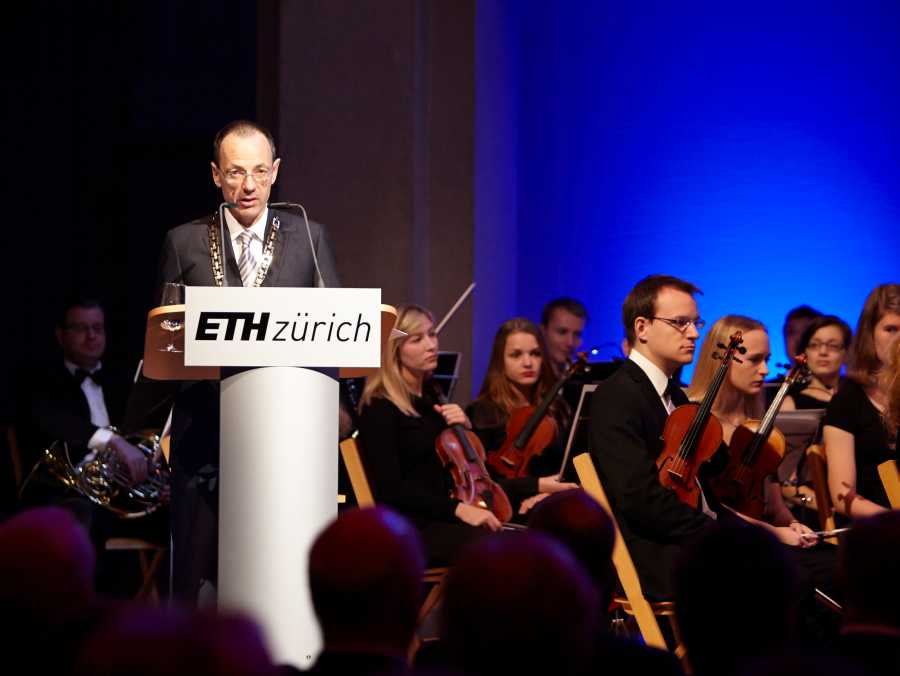
Rector Lino Guzzella compard Switzerland's research and education system with a complex machine (Photo: Giuilia Marthaler/ETH Zürich). -
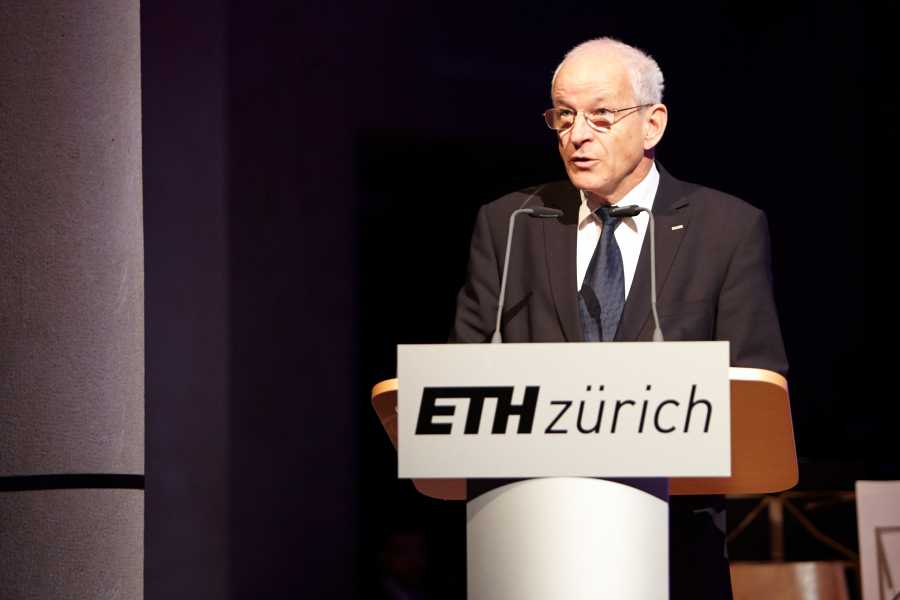
ETH-President Ralph Eichler held a welcoming speech at ETH Day (Photo: Giulia Marthaler/ETH Zurich). -
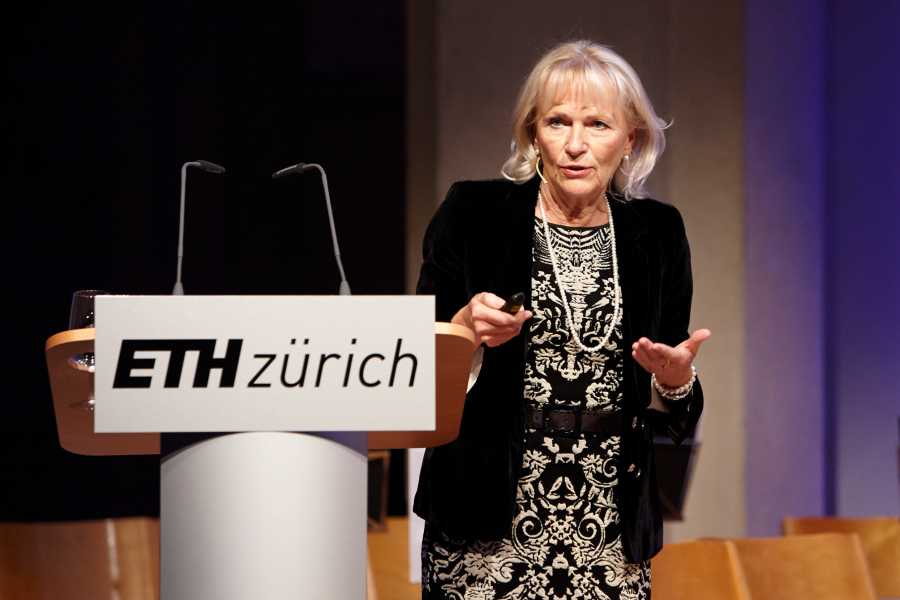
Prof. Felicitas Pauss held a speech as President of the Lecturers' Conference (Photo: Giulia Marthaler / ETH Zurich). -
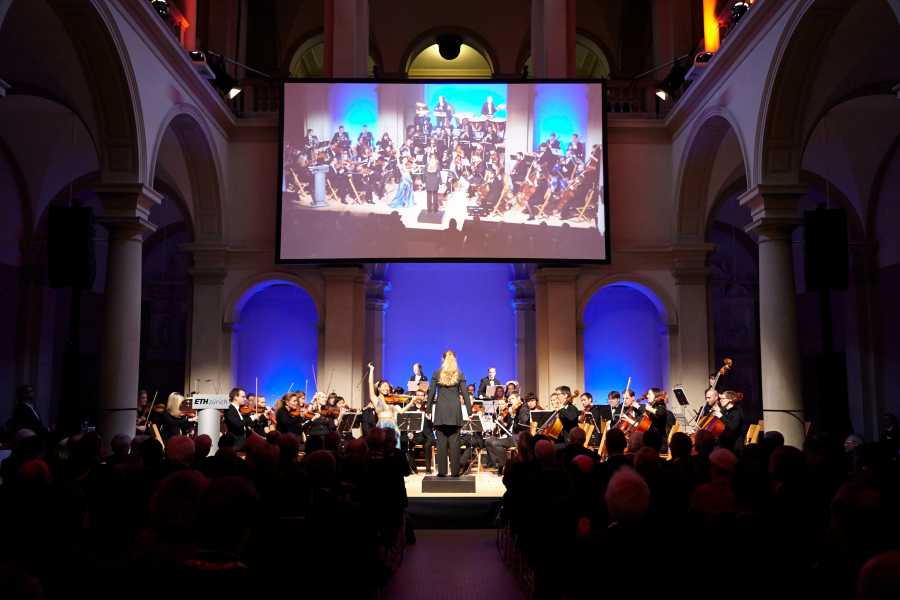
The Academic Orchestra played under the direction of Zoi Tsokanou (Photo: Giulia Marthaler / ETH Zurich). -
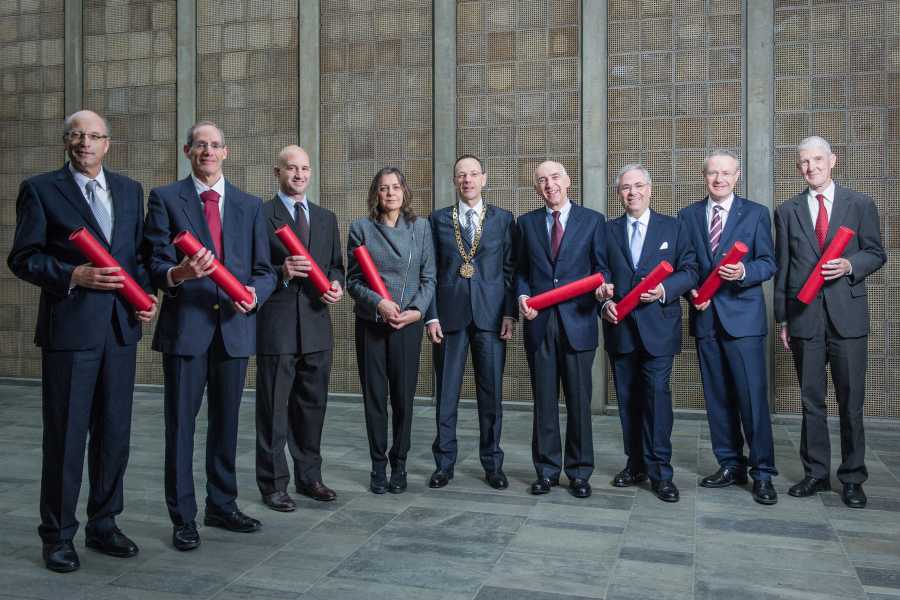
The Honorary Doctorates and Honorary Councillors with ETH-Rector Lino Guzzella (Photo: Oliver Bartenschlager/ETH Zurich).
Further Information
Names and Biographies of Honorary Doctorates and Honorary Councillors as well as a list of all award winners of the ETH Day 2013 are available at the website of ETH Day 2013.

